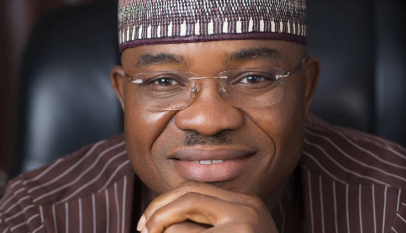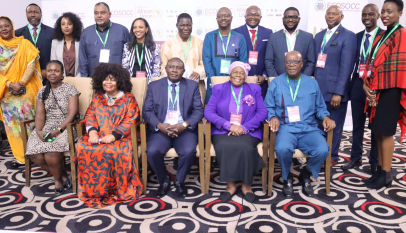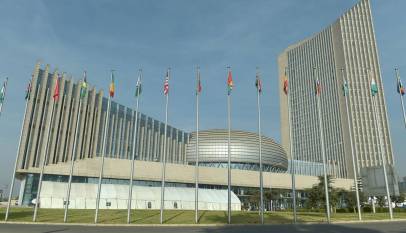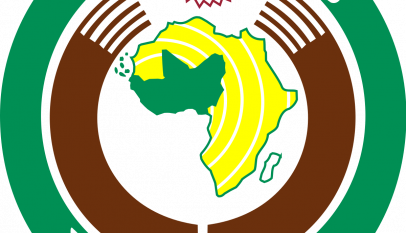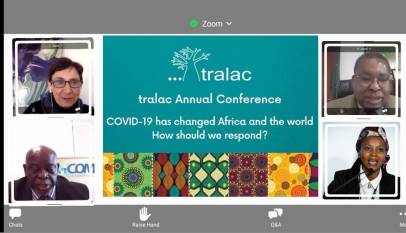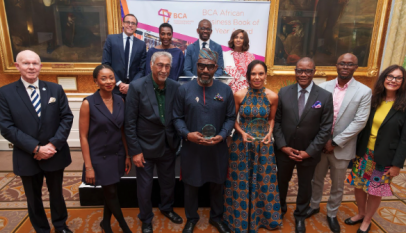INTERVIEW | Only Few AU countries have domesticated Agenda 2063; many yet to account for it – Nombulelo Mbokazi
Nombulelo Mbokazi is the executive director of the Agenda 2063 Academy, focused on making African citizens main drivers of the implementation of African Union’s Agenda 2063: The Africa We Want.
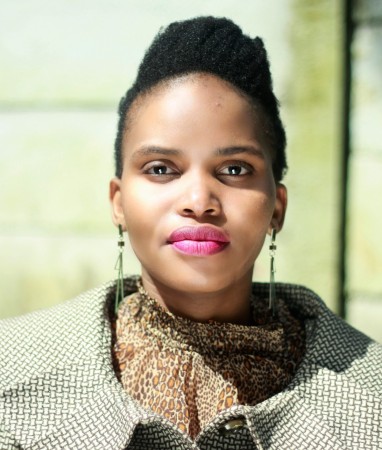
Newspage: The Agenda 2063 Academy was founded in July, 2019 to “engage African civil society, and in particular, the citizens of African countries, to be the main drivers and stakeholders of the implementation of Agenda 2063.” How have you been able to deliver on this important mandate in the last one year?
Mbokazi: To deliver on our mandate, the Agenda 2063 Academy had created a number of programmes, some of which have been put on hold due to COVID 19. They include: Start-up Weekend Eswatini: Partnering with Techstars, which is a 54-hour programme that runs from Friday night through Sunday morning; it brings together designers, developers, entrepreneurs, and experts from all domains to promote innovation which will contribute to the domestication of Agenda 2063.
Also, the Academy has developed an outreach model to assist Small, Micro and Medium Enterprises (SMMEs) to achieve competitiveness for export and import readiness as well as general small business internationalization. We will assist SMMEs to pitch for their own financing, transform their processes so as to help them meet compliance standards and foster strategic partnerships as well as enrich their understanding of international markets.
We also have Solve-IT, a programme that brings together two citizens from all the African Union Member States, challenging them to design and moonshot scalable solutions to implementation challenges of Agenda 2063’s flagship programmes. We will be unveiling more exciting partnerships and programmes scheduled for the next year, very soon.
Newspage: We are gradually moving towards the end of the First Ten Year Implementation Plan (FTYIP) of Agenda 2063 (2013 – 2023). What is your assessment of Africa’s progress in the implementation of the Agenda thus far?
Mbokazi: According to the First Continental Report on Implementation of Agenda 2063 released in February 2020, the continent has made some progress in pursuit of the seven Agenda 2063 aspirations with an aggregate score of 32%. For Aspiration 4: A peaceful and secure Africa, the continent performed remarkably well with an aggregate score of 48% against the 2019 target.
The continent achieved 44% of the 2019 target in its pursuit of Aspiration 2: An Integrated, politically united continent that is based on the ideals of pan-Africanism and the vision of an African Renaissance. This was achieved through collective and concerted efforts of Member States on operationalizing the African Continental Free Trade Area (AfCFTA), amongst others. Similarly, a relatively strong performance of 38% was recorded on Aspiration 6: An Africa whose development is people-driven, relying on the potential of the African People.
A performance score of 29% was recorded on Aspiration 1: A prosperous Africa based on inclusive growth and sustainable development. Conversely, a weak performance score of 16% was registered on the continent’s efforts towards realizing Aspiration 3: An Africa of good governance, democracy, respect for human rights and the rule of law as well as Aspiration 5: Africa with a strong cultural identity, common heritage, value and beliefs, which registered an even lower score of 12%.
This means a slow progress was also registered on the implementation of some of the goals of Agenda 2063, namely: Goal 4: Transformed Economies and Job Creation; Goal 5: Modern Agriculture for Increased Productivity and Production as well as Goal 6: Blue/Ocean Economy for Accelerated Economic Growth. However, remarkable progress was recorded on Goal 1: A High Standard of Living, Quality of Life and Well-Being for All – revealed, amongst others, in the form of an exponential increase in internet penetration.
Regarding the implementation of the First Ten Year Implementation Plan (FTYIP) of Agenda 2063, out of the 12 flagship programmes/projects, four have made remarkable progress. The African Continental Free-Trade Area (AfCFTA) has achieved such a significant progress that even the AfCFTA Secretariat was launched last August in Ghana. The Pan-African e-Network was installed across 48 AU Member States under which 22,000 students obtained degrees in various undergraduate and graduate disciplines; 770 annual telemedicine consultations were carried out while 6,700 continuous medical education sessions were held for nurses and doctors.
With regards to cyber security, many African countries are still at an early stage of developing their cyber strategies and are therefore currently drafting and adopting cyber laws. Strategic partnerships have been established with four key organizations that support quality assurance and delivery of the Pan African Virtual and E-University (PAVEU) courses. Having said that, only 31 AU Member States were able to account for the implementation of Agenda 2063. A few countries such as Chad, Seychelles, Sudan and Uganda have successfully integrated Agenda 2063 into their national vision documents. This calls for a lot of advocacy to realize the significant potentials of Agenda 2063
Newspage: The 2nd edition of your 2063 Academy, a series of training sessions aimed at promoting Africa’s Agenda 2063 and Pan-Africanism among African youths, will be holding November 23-28. How important is this series of trainings in achieving your mandate as an institution?
Mbokazi: Many African citizens across the continent remain disconnected to the reality of Africa having its own development goals. This difficulty associated with engaging the civil society has been raised by the AU as an obstacle to the successful implementation of Agenda 2063’s goals and flagship programmes/projects. Consequently, at the Agenda 2063 Academy, we have designed a bold vision for Africa. We imagine an Africa that is a global player, particularly in the areas of agriculture, education technology and infrastructure development.
We imagine an Africa which is harnessing the skills and potential of its citizens – both on the continent, and in the Diaspora. We imagine an Africa where Agenda 2063 flagship projects are fully achieved; from the common African Union Passport, to a fully operational African Continental Free Trade Area (AfCFTA), the Single African Air Transport Market (SAATM) and Africa’s Integrated High Speed Rail Network (AIHSRN) that connects African cities – from Cape to Cairo, and Rabat to Maputo. Therefore, such series of trainings speak to our core focus areas which are education, advocacy, skilling and linking.
Newspage: The Academy’s trainings seem to be youth-focused, how important are Africa’s young people in the implementation of the AU Theme of the Year 2020: Silencing the Guns in Africa which is part of the Agenda 2063’s flagship programmes?
Mbokazi: As an academy, we see achieving the goals and aspirations of Agenda 2063 as a spider web – they are intertwined. Yet it starts with awareness! Awareness will lead to understanding the interconnectedness of the goals and aspirations of Agenda 2063. For example, as a Swazi citizen, I may take it for granted or even struggle to identify with the Silencing the Guns in Africa campaign, since we are a fairly peaceful country. Therefore, I need to understand that war and other violent conflicts jeopardize our chances for achieving all the other goals and therefore directly affect continental progression.
For example; an integrated, politically united continent that is based on the ideals of pan-Africanism and the vision of an African Renaissance (Aspiration 2) would lead to a prosperous Africa based on inclusive growth and sustainable development (Aspiration 1) which will result in good governance, democracy, respect for human rights, justice and the rule of law (Aspiration 3), which will in turn lead to a peaceful and secure Africa (Aspiration 4).
Therefore, such trainings firstly create the awareness that leads to dialogue which results in the creation of understanding of the Agenda. We believe it is at this point that solutions can emerge. We often underestimate the effects of ignorance and misinformation. This is a means to the journey, not necessarily the destination. As determined as we are as young people, we are aware that this may take time. Yet all must contribute to the process.


